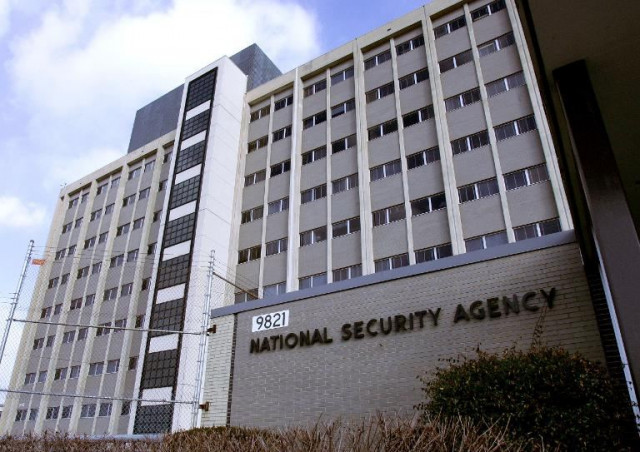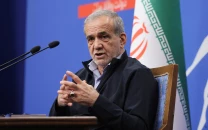NSA set for November cut-off for bulk US phone data usage
NSA must preserve bulk telephony metadata collection "until civil litigation regarding the program is resolved"

During the 180-day transition period required under the USA Freedom Act, "analytic access to that historical metadata... will cease on November 29, 2015." PHOTO: AFP
The office of the Director of National Intelligence said in a statement that the bulk telephony data -- the subject of leaks by former intelligence contractor Edward Snowden which shocked many in the US and abroad -- would be destroyed "as soon as possible" to comply with a law passed by Congress in early June.
The statement said that during the 180-day transition period required under the USA Freedom Act, "analytic access to that historical metadata... will cease on November 29, 2015."
Read: US Congress passes bill curbing NSA surveillance
But it added that "for data integrity purposes," NSA will allow technical personnel to continue to have access to the metadata for an additional three months.
Additionally, the statement said NSA must preserve bulk telephony metadata collection "until civil litigation regarding the program is resolved, or the relevant courts relieve NSA of such obligations."
The data kept for litigation "will not be used or accessed for any other purpose, and, as soon as possible, NSA will destroy the Section 215 bulk telephony metadata upon expiration of its litigation preservation obligations."
The USA Freedom Act sought to roll back the powers of the NSA under the Patriot Act, and notably Section 215, which authorized a vast data sweep programme the agency said was aimed at tracking potential terrorists.
Read: Leaked documents show US widened Internet spying
The new law halts the NSA's ability to scoop up and store metadata -- telephone numbers, dates and times of calls, but not the content -- from millions of Americans who have no connection to terrorism.
It shifts responsibility for storing the data to telephone companies, allowing authorities to access the information only with a warrant from a secret counterterror court that identifies a specific person or group of people suspected of terror ties.



















COMMENTS
Comments are moderated and generally will be posted if they are on-topic and not abusive.
For more information, please see our Comments FAQ